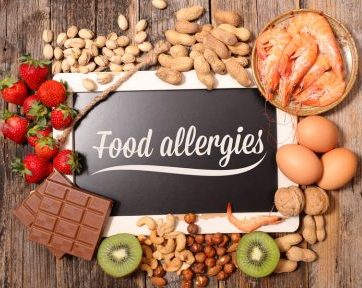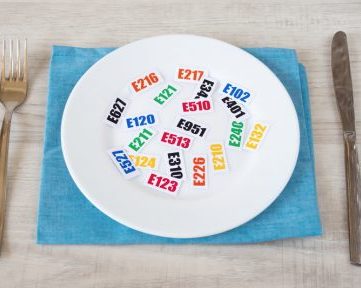The low chemical elimination diet is a test diet to investigate food chemical intolerance.
Food intolerance, also known as non-IgE mediated food hypersensitivity or non-allergic food hypersensitivity, refers to a wide range of adverse reactions to foods. Symptoms after eating some foods include stomach pain, bloating, gas/ flatulence, diarrhoea, Irritable bowel syndrome (IBS), rashes, hives (urticarial), recurrent mouth ulcers or headaches.
The mechanism is not clearly understood. It could be a chemical reaction, which means that some compounds in food impact the way the body functions. Like the pharmacological effect of medicines or other drugs the reactions are dose dependant and there are withdrawals and cravings involved. There is also an idiosyncratic component, as each individual has his own pattern of reaction.
Unlike food allergy, reactions are not caused by an immune response to food proteins. However, histamine can be released as part of the reaction and symptoms can be similar to those caused by food allergy. Food intolerance can also cause different symptoms than allergies such as nervous system symptoms and behaviour problems.
Unlike allergies, there are no skin tests or blood tests for intolerances diagnosis. The only reliable ways of finding out which food chemicals may triggering your symptoms is the elimination diet.
Mariame Iraki uses RPAH (Royal Prince Albert Hospital) elimination diet protocol.
The RPAH elimination diet consists in 4 stages.
The first stage is a diagnostic elimination diet which is a short-term investigation diet. It helps to find out if symptoms are caused by food chemicals by excluding or reducing all possible trigger substances at the same time.
The second stage is a series of food challenges to identify the specific chemicals you react to.
The third stage is the personalised diet which is a gradual reintroduction of the foods that didn’t cause reaction.
The fourth and last stage is liberalising the diet in the aim to identify the threshold of each chemical causing reaction. The idea is finding a way of managing symptoms by trying to find a balance between the symptoms you are prepared to live with, and the variety and flavour you might like to have in your diet.
Mariame Iraki has a special interest in food intolerance and has done several trainings in this area. She hold a professional medical certificate for medical nutrition therapy for food allergy and intolerance and attended the RPAH food allergy and intolerance workshop at Allergy unit at RPAH. She is qualified to assist you managing your food intolerance with the low chemical elimination diet.
References and recommended websites:



